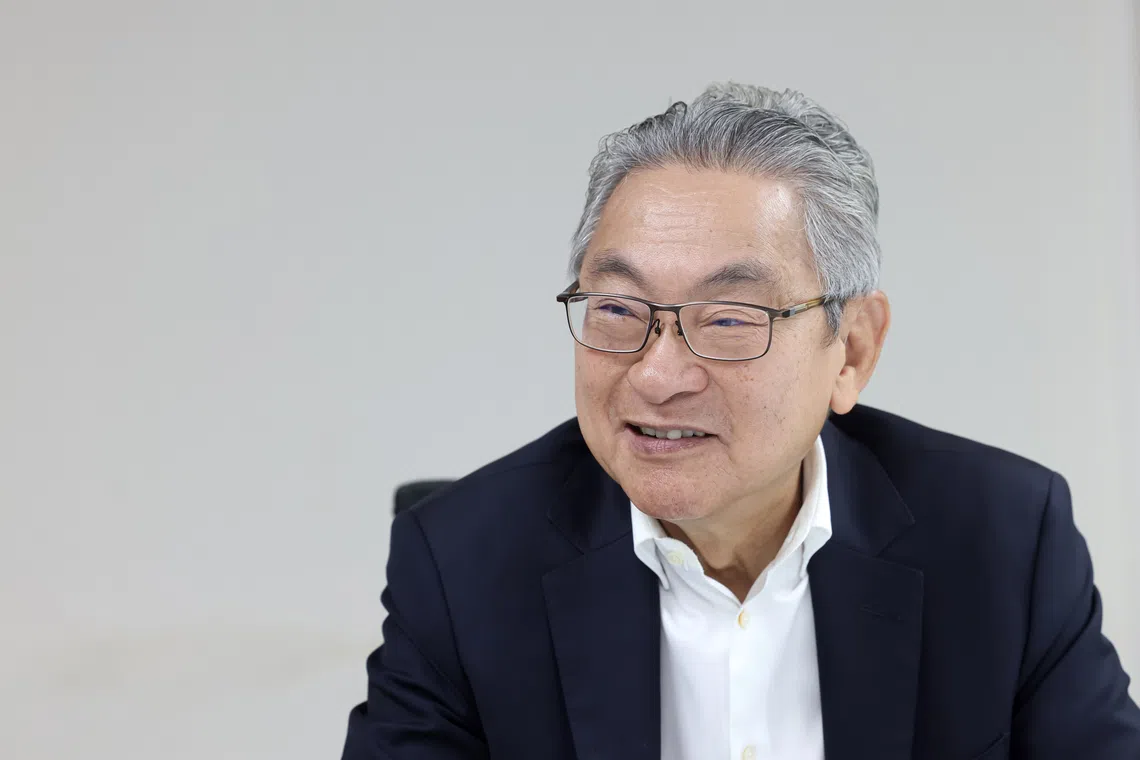Investors must take greater responsibility for their investment decisions: SGX chairman
Sign up now: Get ST's newsletters delivered to your inbox

SGX Group chairman Koh Boon Hwee said that having a regulatory regime works better than trying to remove all the risks.
PHOTO: THE BUSINESS TIMES
Follow topic:
- SGX encourages retail investors to take more responsibility for investment decisions, focusing on equipping them to face risk rather than shielding them.
- SGX aims to attract South-East Asian start-ups, becoming a first-mover listing venue by taking calculated risks and establishing early liquidity.
- Singapore must rejuvenate its capital markets with bold vision and supportive policies, or risk losing talent and innovation to overseas markets.
AI generated
SINGAPORE – Retail investors should take more responsibility for their investment decisions on the Singapore Exchange (SGX) as measures are taken to boost liquidity on the local bourse, and as it positions itself to be the listing venue of choice for promising start-ups in South-east Asia.
Having a regulatory regime that lets investors see the facts and decide for themselves works better than trying to remove all the risks, SGX Group chairman Koh Boon Hwee said in a Sept 15 letter to shareholders published in the group’s annual report for the 2025 financial year.
“Protecting retail investors is not about shielding them from risk, because risk will find them.
“It is about equipping them to face it in our markets and on our terms, before others do it on theirs,” he said.
Mr Koh’s remarks follow the work of a review group set up by the Monetary Authority of Singapore (MAS) in late 2024 to rejuvenate the local stock market.
The group has since recommended that the SGX shift away from a prescriptive approach, where regulators dictate exactly what companies can or cannot do, towards a disclosure-based framework that emphasises transparency and timely reporting, allowing investors to make informed decisions.
MAS proposed in July placing greater onus on individual investors to evaluate for themselves how well certain investment products suit them, while providing an appropriate level of intervention for consumers who need more assistance.
“It is a move to right the balance between fiat and individual choice. We can be bold in entrepreneurship, not just in our start-ups but (also) in our policy thinking,” Mr Koh said.
More than ever, Singapore will need to take the lead in the capital markets by taking calculated risks to attract listings from promising companies, rather than letting competitors get ahead and learning from their mistakes.
Being the first mover is crucial in capital markets, Mr Koh said.
“Liquidity, once established, is hard to shift.
“Singapore, for instance, leads global iron ore trading not due to natural resources, but because we were the first to act – demonstrating that in markets, liquidity attracts even more liquidity.”
While being a first mover carries risks, Mr Koh said Singapore, with its high level of economic development, can no longer depend on imitating others to advance. This approach risks causing the country to fall behind others that are more willing to lead.
Mr Koh noted that there are hundreds of maturing start-ups in South-east Asia that will soon be looking for ways to return capital to their investors.
“In my view, there is currently a gap in this space, one that will inevitably be filled as the VC (venture capital) market in South-east Asia cannot be sustained as long as capital is not recycled. Trade sales alone will not fulfil this role.”
The SGX Group is well placed to meet their needs, so long as it is supported by an enabling policy framework.
Said Mr Koh: “A few may list on the largest global exchanges, while the rest will require a different venue and solution.
“Not every one of them will be a unicorn – and that is precisely the point. A healthy, vibrant capital market must serve not only the exceptional few but (also) the promising many.
“What is clear is that everyone seeks a vibrant equity market that is liquid and fairly valued.”
He said such a market can be a national asset that creates jobs and wealth, enables the best ideas and companies to scale, and paves the way for Singapore to secure its place in the world.
He compared the push to rejuvenate Singapore’s capital markets with the Republic’s earlier drive to become a research and development hub, which was achieved through bold vision and supportive policies.
“In the same spirit, we must now ask ourselves whether we hold the same ambition for our capital markets.”
The stakes are high, according to Mr Koh.
If Singapore’s best companies choose to list overseas, the implications go far beyond the SGX, he said.
“Over time, the entire value chain – investment bankers, corporate lawyers, accountants – will shift to jurisdictions where the action is.
“Singapore may remain a booking centre, but the talent, innovation and higher-value margins will find their home elsewhere.”
Summing up, Mr Koh said: “By working collaboratively, we can create an environment that supports innovation, growth and resilience, ensuring Singapore remains a global leader in the financial sector.”


